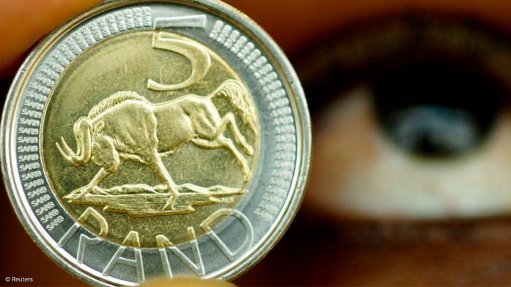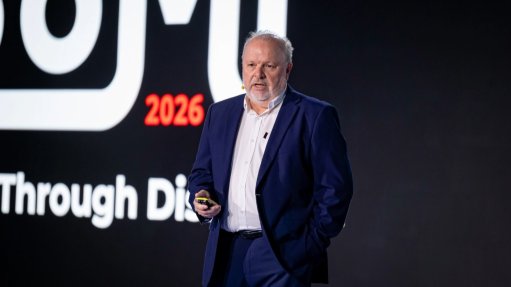Nigeria’s political cuckoos get busy ahead of 2027 polls
As I was preparing this article on Nigeria’s progress since President Bola Tinubu took office in May 2023, news broke of the death of his predecessor, Muhammadu Buhari. Tinubu had been kingmaker to Buhari, urging the latter to use the successful opposition coalition – the All Progressives Congress (APC) party – that Tinubu built on the back of his success as governor of Lagos state.
Perhaps the only positive about Buhari’s term is the distance it marked in Nigeria’s democratic journey away from military rule, which finally ended in 1999. Buhari, once a brutal military dictator, faced Nigerians at the polls twice. The APC swept Buhari to legitimate office for the first time – on a pre-prepared policy platform of anticorruption and reform. But like the cuckoo in the nest that he was, once in office, he scrapped the APC reform agenda, assumed full control of the Presidency, and ruled with a small clique of relatives and people from his hometown of Daura in Katsina state. His two terms were marked by policy inertia, which led to an explosion of corruption and an implosion of State control and, in turn, a nationwide security crisis, with Islamist extremist terrorist activity out of control in the north-east, kidnappings nationwide, and piracy in the oil-rich Niger Delta region. Harking back to the 1970s military rule, Buhari re-imposed exchange controls, intermittently closed borders to trade, and banned imports of certain goods, which crushed domestic manufacturing as companies struggled to import essentials or access foreign exchange. Nigeria became uninvestible. This, and Covid, led to some 80- million of the estimated 200-million Nigerians moving into extreme poverty.
The disastrous consequences of Buhari’s Presidency set the roadmap for Tinubu’s Presidency when he won elections in May 2023. Tinubu tackled several of Nigeria’s most pressing and perennial economic problems. On his first day in office, he scrapped Nigeria’s notoriously corrupt fuel subsidies system; by June 2023, he had freed the currency, the naira, to find its own level. With the money saved by ending fuel and electricity subsidies, by November 2024 Tinubu announced he had reduced Nigeria’s crippling debt-servicing ratio from 98% of GDP under Buhari to 68%. His reforms have made Nigeria investible once again, drawing $50- billion in FDI into Nigeria.
Tinubu is bringing to the nation some of the tax reforms that made him famous in Lagos state. In June this year, he introduced laws to clean up the tax system with a new independent agency, the Nigeria Revenue Service, a Tax Ombudsman, a Tax Appeal Tribunal and a tax code that merges several rules into a single code that scraps 50 overlapping taxes. He has established a set of common rules for how taxes are collected across federal, state and local governments. He has also introduced a series of measures to boost small business and reverse acute poverty, the legacy of his predecessor.
Forecasts for Nigeria’s growth rates have steadily improved, with the World Bank putting growth at 3.6% in 2025, rising to 3.8% in 2026, up from 2.9% in 2023, but warning that the inflation rate is off the mark at 22%, despite being down from 33% a year ago. The central bank’s target is 6%.
Tinubu hasn’t been shy to tackle governance issues, with respected newsletter Africa Confidential noting that all his appointed Ministers have performance score cards emphasising delivery. In October 2024, he fired five Ministers and appointed seven new ones. Former central bank governor Godwin Emefiele was arrested for his management of an exchange control system that facilitated high levels of corruption. Yet, the single most significant improvement in national governance came with the scrapping of fuel subsidies. To restore the trust of international oil and gas and to improve oil revenues, in April this year, Tinubu dismissed the board and CEO, Mele Kyari, of the State-owned Nigeria National Petroleum Corporation. The Economic and Financial Crimes Commission is currently investigating $2.96-billion in Kyari-era financial misconduct.
Tinubu’s reforms have been hard and unpopular because they caused short-term hardship through inflation and an end to popular fuel and electricity subsidies. They have also made him political enemies. He is almost certain to run for a second term in 2027. By then people are likely to start feeling the benefits of these reforms in low inflation and less tax, making money go further. Horse-trading between governors, Ministers and personalities with a regional base has already begun, which may put pressure on his reform and delivery agenda as elections draw close.
Tinubu’s second-term plans also face an unprecedented challenge from a new political party. Several ‘big political beasts’ have clubbed together to take over a small, registered party, the African Democratic Congress (ADC), which was registered with the Independent National Electoral Commission in 2005 and has the requisite presence in at least 24 of Nigeria’s 36 states and headquarters in Abuja. The ADC’s Dumebi Kachikwu came fifth in the last Presidential election and the party has two representatives in the National Assembly. Having agreed to the friendly takeover, the ADC gets the massive boost of money and critical pan-Nigeria support the political heavyweights bring. Most are former members of Nigeria’s first post-1999 democratic political party, the People’s Democratic Party (PDP). Principal among these is former Vice-President Atiku Abubakar, would-be President in no less than six previous elections. Equally significant are former senate president David Mark, former (northern) Kaduna state governor Nasir El Rufai, and former (south-south) Rivers state governor Rotimi Amaechi. Bringing heft from east-central Nigeria and among tech-savvy youth is former Labour Party leader Peter Obi, a former governor of Anambra state who ran as a Presidential candidate in 2022, winning in 12 states.
What is not at risk, however, with either a second term of Tinubu or an ADC Presidency is the reform agenda that is likely to keep Nigeria on its current growth path. While accusations of corruption follow Tinubu and Atiku, both have proved their reformist credentials. Atiku, with El Rufai, drove former President Olusegun Obasanjo’s privatisation agenda, bringing massive new investments into Nigeria, and the ADC’s new leadership claims it is the ADC’s link to Obasanjo’s reformist ideals that influenced the takeover decision. Will the ADC cuckoos’ eggs hatch in the 2027 elections?
Article Enquiry
Email Article
Save Article
Feedback
To advertise email advertising@creamermedia.co.za or click here
Press Office
Announcements
What's On
Subscribe to improve your user experience...
Option 1 (equivalent of R125 a month):
Receive a weekly copy of Creamer Media's Engineering News & Mining Weekly magazine
(print copy for those in South Africa and e-magazine for those outside of South Africa)
Receive daily email newsletters
Access to full search results
Access archive of magazine back copies
Access to Projects in Progress
Access to ONE Research Report of your choice in PDF format
Option 2 (equivalent of R375 a month):
All benefits from Option 1
PLUS
Access to Creamer Media's Research Channel Africa for ALL Research Reports, in PDF format, on various industrial and mining sectors
including Electricity; Water; Energy Transition; Hydrogen; Roads, Rail and Ports; Coal; Gold; Platinum; Battery Metals; etc.
Already a subscriber?
Forgotten your password?
Receive weekly copy of Creamer Media's Engineering News & Mining Weekly magazine (print copy for those in South Africa and e-magazine for those outside of South Africa)
➕
Recieve daily email newsletters
➕
Access to full search results
➕
Access archive of magazine back copies
➕
Access to Projects in Progress
➕
Access to ONE Research Report of your choice in PDF format
RESEARCH CHANNEL AFRICA
R4500 (equivalent of R375 a month)
SUBSCRIBEAll benefits from Option 1
➕
Access to Creamer Media's Research Channel Africa for ALL Research Reports on various industrial and mining sectors, in PDF format, including on:
Electricity
➕
Water
➕
Energy Transition
➕
Hydrogen
➕
Roads, Rail and Ports
➕
Coal
➕
Gold
➕
Platinum
➕
Battery Metals
➕
etc.
Receive all benefits from Option 1 or Option 2 delivered to numerous people at your company
➕
Multiple User names and Passwords for simultaneous log-ins
➕
Intranet integration access to all in your organisation


















